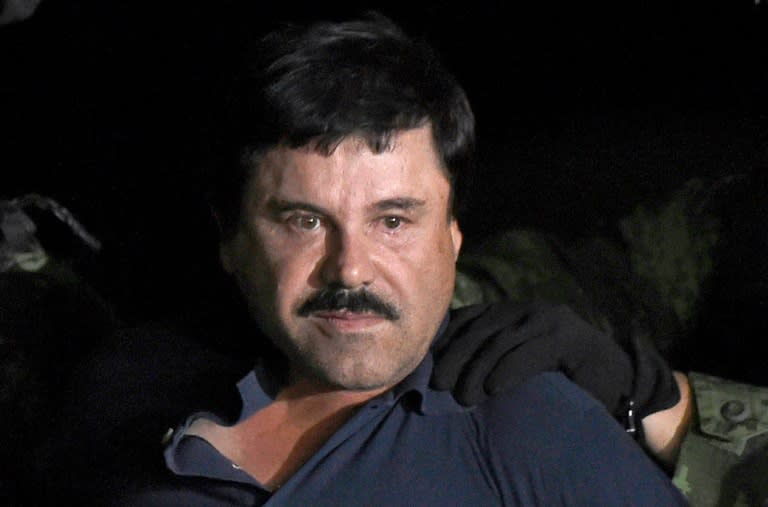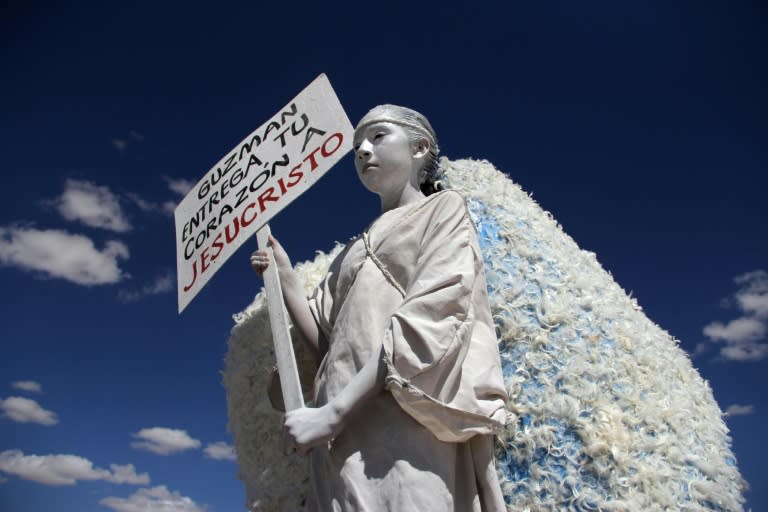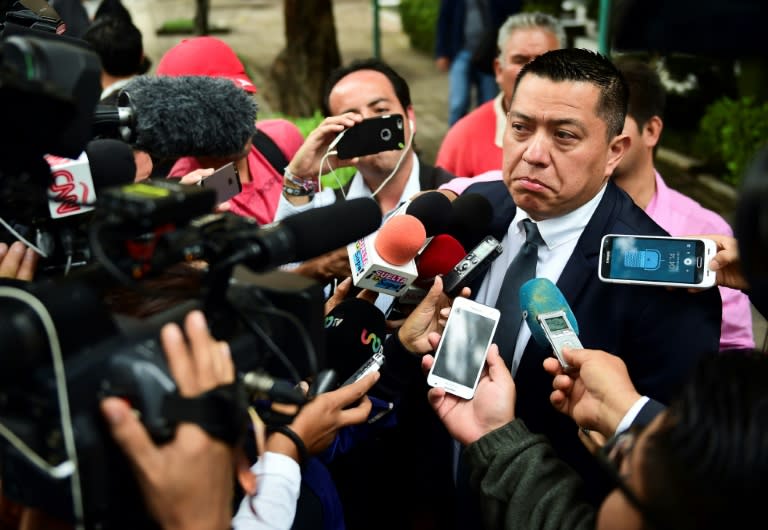Drug lord Guzman 'serene' as extradition ruling looms
A Mexican judge held a hearing on Monday on whether Joaquin "El Chapo" Guzman can be extradited to the United States, although the drug kingpin could have to wait anything from a day to weeks to know his fate. One of Guzman's lawyers, Jose Refugio Rodriguez, said the Sinaloa drug cartel leader was "very serene" as he waits for the decision but that he has "lost a lot of hair" while enduring prison treatment amounting to torture. The foreign ministry gave the green light to Guzman's extradition in May, but the former most wanted man won a temporary injunction in June, which the judge must decide whether to make permanent or strike down. After a hearing that lasted less than two hours, another Guzman lawyer, Andres Granados, said the judge in Mexico City told him he would examine the case but did not indicate when he would issue his ruling. "If it's not favorable to us, we will request a review" by a higher court, Granados told reporters after the closed-door hearing. A US government official told AFP that a ruling is not expected on Monday, unlike previously thought, and could take 15 days. Granados said it could take days or up to two months. If the judge approves the extradition, Guzman would have 10 days to appeal to a higher court of appeals, which would then take several weeks to rule, his lawyers said, warning that he could take the case to the Supreme Court. The US official, who spoke on condition of anonymity, said Guzman could be in US custody before the end of the year. He faces charges ranging from murder to drug distribution in courts in Texas and California. Guzman was captured in February 2014 after 13 years on the lam, but he escaped a year later from the Altiplano maximum-security prison near Mexico City through a 1.5-kilometer (one-mile) tunnel, humiliating President Enrique Pena Nieto. After he was recaptured in January in his northwestern home state of Sinaloa, he was sent back to the same prison. But he was abruptly transferred in May to another prison in Ciudad Juarez, a city bordering Texas once known for its cartel turf wars. Pena Nieto had balked at extraditing Guzman before his escape in July 2015, preferring to put him on trial in Mexico. But after he was recaptured, the president ordered the attorney general's office to speed up the extradition process. - Torture claim - Refugio Rodriguez told AFP his client's health has "deteriorated a lot" while in prison. "He's doing very badly. He's isolated. He lost a lot of hair because he takes a lot of medicine. He lives in constant physical stress," the lawyer said. Guzman's lawyers are claiming in another court that his treatment amounts to torture. "Lawyer visits are once a week and (during that time) three (guards) with cameras on their helmets come in and they stay next to us. They write everything down, record everything, violating the privacy rights of Guzman and the lawyer," Granados said, adding that his client is "depressed." The government denies mistreating Guzman and says it stepped up security measures because he has escaped twice from prison in the past 15 years. His lawyers are seeking a court ruling for him to be sent back to the Altiplano. Guzman's extradition would set up a major trial in the United States for a man whose cartel has been accused of murdering countless people in Mexico while providing tons of cocaine and other drugs to users in the United States.




